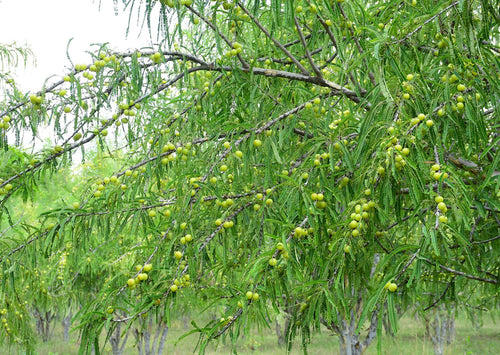Cultivating Urban Change: Zededa India’s Tree Planting Drive
Zededa India Pvt Ltd's tree plantation initiative aims to enhance urban forests while fostering employee engagement and environmental responsibility. Read more
Project Update 4









Project Update 3
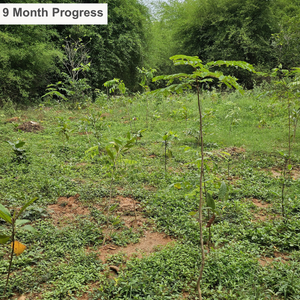
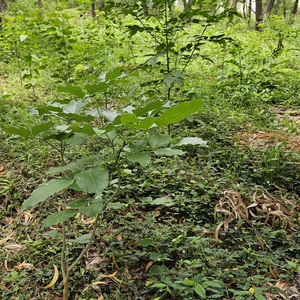
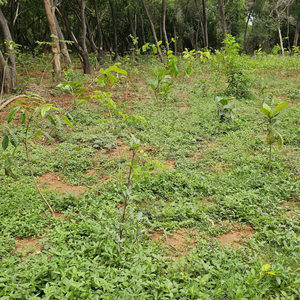
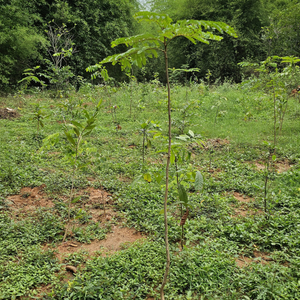
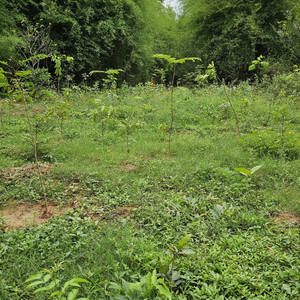
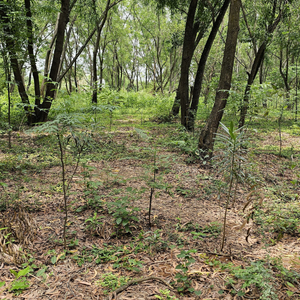
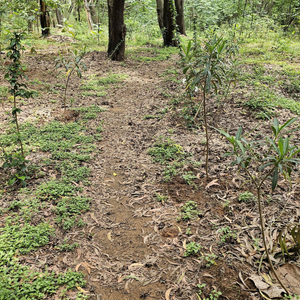
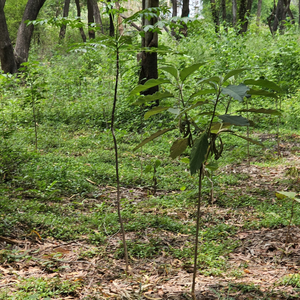
Project Update 2
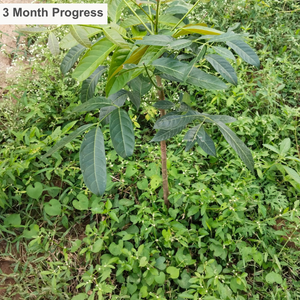
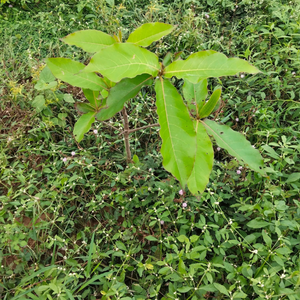
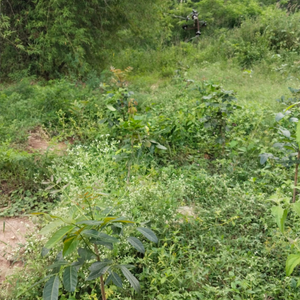
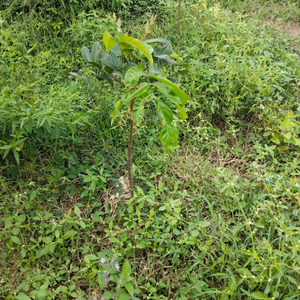
Project Update 1

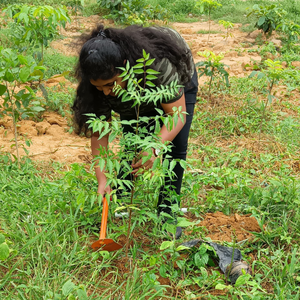
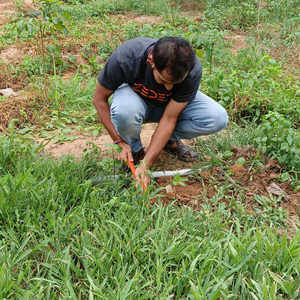
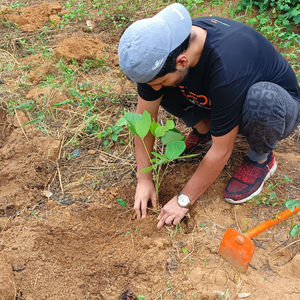

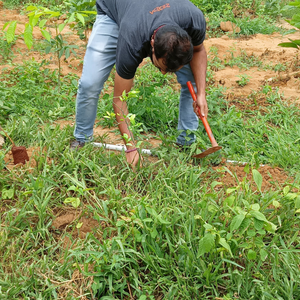
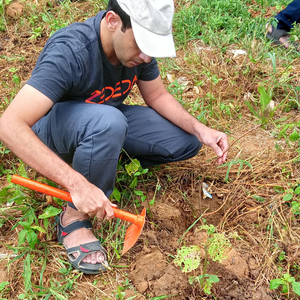
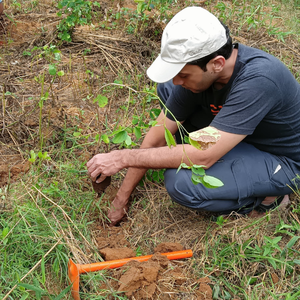
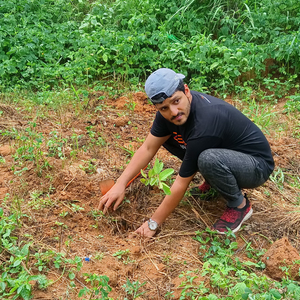
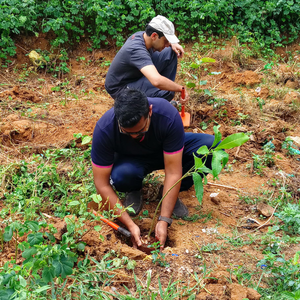
Digital Forest
Forest with 50 Trees planned
Want to plant your tree now?
Plant a Tree @ 299Cultivating Urban Change: Zededa India’s Tree Planting Drive
Zededa India Pvt Ltd's tree plantation initiative aims to enhance urban forests while fostering employee engagement and environmental responsibility. By actively involving employees in planting and nurturing trees in urban areas, the initiative promotes teamwork and a shared commitment to sustainability. Participants not only contribute to creating green spaces that improve air quality and support biodiversity, but also enjoy the personal satisfaction of making a positive impact on their community. This initiative reflects Zededa's dedication to corporate social responsibility, encouraging a culture of environmental stewardship and awareness among its workforce while transforming urban landscapes into healthier, more vibrant ecosystems.
Project Planning & Execution
No of Trees: 50 trees
Plantation Location: Muthanallur Colony, Gopasandra, Karnataka 560099
Plantation Date: 5th July 2024
Name of Species: Pipal, Karanj, Arjun, Imali, Avala, Badam, and Bargad
Species Selection & Its Benefits:
Zededa’s tree plantation initiative at Muthanallur Colony, Gopasandra, Karnataka, focused on selecting species well-suited to the region’s climate and ecological conditions, ensuring long-term sustainability and environmental resilience. The selection of native, medicinal, and culturally significant trees was aimed at enhancing biodiversity, improving air quality, supporting water conservation, and enriching the urban green cover.
A total of 50 trees were planted, including the species Pipal, Karanj, Arjun, Imali, Avala, Badam, and Bargad. These trees serve multiple ecological functions—Pipal and Bargad are keystone species that support a wide range of wildlife and release high amounts of oxygen.
Karanj, Arjun, and Imali are known for their medicinal value and contribute to soil health and erosion control. Trees like Avala and Badam offer nutritional benefits and attract pollinators, while also helping to improve the microclimate.
Biodiversity-friendly and shade-providing, these species also hold cultural and environmental significance, playing a role in traditional healing, community well-being, and habitat creation. Their presence not only supports local flora and fauna but also enhances the overall resilience of the urban ecosystem. Through this initiative, Zededa reinforces its commitment to sustainability and a greener, healthier future.
Beneficiaries Details
-
Target Population: Employees, stakeholders, and local community members of Gopasandra, Karnataka
-
Age Group: All age groups focus on adults to seniors
-
Gender: Inclusive of all genders
- Social & Economic Status: Open to all social and economic backgrounds, emphasizing community involvement
Planting Methodology and Its Advantages
Urban Forestry: An urban forest is a network of trees, shrubs, and vegetation strategically planted in urban areas to enhance biodiversity, improve air quality, reduce the urban heat island effect, and provide green spaces for community well-being. It helps mitigate climate change by absorbing carbon dioxide, promotes mental health through accessible green areas, and supports local wildlife by creating habitats. Urban forests play a vital role in building resilient, sustainable cities that benefit both the environment and the people who live in them. These plantations are essential in offsetting the negative impacts of rapid urbanisation by creating cooler, cleaner, and more sustainable urban environments. With limited space in cities, thoughtful species selection, soil preparation, and ongoing maintenance are crucial for the long-term success of urban plantations.
Advantages of Urban Forestry
-
Climate Regulation and Cooling Effect: Urban forests help mitigate the urban heat island effect by providing shade and cooling through transpiration, lowering temperatures in cities, reducing the need for air conditioning, and conserving energy.
-
Improved Air Quality: Trees absorb pollutants like carbon dioxide, nitrogen oxides, and particulate matter, leading to improved air quality and reducing the risk of respiratory illnesses in urban areas.
-
Stormwater Management and Flood Prevention: Urban forests improve the soil’s ability to absorb and retain water, reducing stormwater runoff, preventing flooding, and promoting groundwater recharge, thus helping manage water resources efficiently.
-
Soil Erosion Control: The deep root systems of trees prevent soil erosion, especially in areas with heavy rainfall or steep slopes, stabilizing the land and reducing soil loss in urban environments.
-
Aesthetic and Recreational Value: The transformation of unused spaces into green zones adds aesthetic value to the area and provides employees and local communities with recreational spaces, making the workplace more enjoyable.
-
Enhanced Community Engagement and Well-being: Urban forests provide accessible green spaces where communities can engage in recreational activities, improving mental health, reducing stress, and fostering a sense of environmental stewardship among residents and employees.
-
Increased Property Value: Properties located near urban forests or green spaces tend to have higher market values, benefiting local property owners and increasing the overall appeal and livability of the area.
-
Noise Reduction: Urban forests act as natural sound barriers, reducing noise pollution and creating quieter, more peaceful surroundings.
Activities During Tree Plantation
The tree plantation drive organised by Zededa on 5th July 2024 at Muthanallur Colony, Gopasandra, Karnataka, witnessed enthusiastic participation from employees who came together to champion sustainability and environmental responsibility. The event served as a vibrant demonstration of Zededa’s belief in turning climate commitments into meaningful, community-driven action.
Preparations included meticulous site planning, pit preparation, and placement of native and climate-resilient saplings such as Pipal, Bargad, Karanj, Arjun, and Imali. Employees took part in planting activities with great zeal, gaining insights into the ecological and cultural significance of each species. These interactions fostered a deeper connection with nature while reinforcing values of conservation and biodiversity enhancement.
The plantation also served as a platform for team building, reflection, and shared purpose. The event concluded with group photos, leaving behind more than just green footprints—it created a shared memory of climate action and collective resolve for a healthier planet.
Conclusion Elements
Direct Impact
|
Parameters |
Values |
References |
|
No. of Trees Planted |
50 |
|
|
Green Cover (Acres) |
0.15 |
|
|
Carbon Sequestration Potential (KG) |
20 |
Small to medium-sized trees can sequester around 10–48 kilograms (22–106 pounds) of CO₂ annually. https://onetreeplanted.org/blogs/stories/how-much-co2-does-tree-absorb |
|
Carbon Sequestration by 50 mature trees ( Tons/year) |
1 Tons |
No. of Trees x Carbon Sequestration by 1 mature trees per year |
|
Carbon Credit Equivalent |
1 |
One carbon credit is equivalent to one tonne of carbon dioxide or the equivalent amount of another greenhouse gas. |
|
Carbon Footprint of an avg Indian Citizen (Tons/Year) |
1.8 |
|
|
Offsets Annual Carbon Footprint of (Adults) |
1 |
Carbon offset by 50 mature trees per year / Carbon Footprint of an avg Indian Citizen per year |
* This impact analysis is forward-looking (An urban-forest project matures in 3-5 years)
Indirect Impact
Community Impact
-
Improved Public Health: By improving air quality and reducing urban heat, the project indirectly contributes to better public health. The presence of green spaces encourages outdoor activities, which can reduce stress levels, promote mental well-being, and decrease the incidence of respiratory diseases.
-
Environmental Awareness: Involving communities in urban forestry raises awareness about environmental conservation and promotes sustainable practices in daily life.
-
Employee Morale: The initiative fostered a sense of pride and connection among employees, strengthening team bonds and their alignment with the company’s values.
-
Inspiration for Change: By showcasing the potential of urban forestry, the project has encouraged other organisations and local communities to undertake similar initiatives.
-
Cultural Shift: The initiative instilled a mindset of sustainability and environmental care among participants, creating advocates for green practices in their personal and professional lives.
Environmental Impact
-
Carbon Sequestration: The trees planted through Zededa's urban forestry initiative absorb carbon dioxide, acting as carbon sinks and helping mitigate climate change by reducing greenhouse gas emissions.
-
Soil Health Improvement: The tree planting initiative enhances soil health by enriching it with organic matter, improving soil fertility and structure, which supports the growth of surrounding vegetation.
-
Erosion Prevention: Tree roots help stabilise the soil in urban areas, preventing erosion caused by wind and water, while safeguarding nearby properties and infrastructure from potential damage.
-
Biodiversity Conservation: By creating green spaces, the initiative supports local biodiversity, providing habitats for various species, pollinators, and beneficial insects, and enhancing the ecological balance in urban areas.
-
Water Cycle Regulation: The urban forestry project helps regulate the water cycle by improving water retention in the soil, recharging groundwater levels, and reducing surface runoff, leading to a more balanced and sustainable urban environment.
-
Microclimate Regulation: Trees planted through this initiative moderate temperature extremes, reduce wind speeds, and increase humidity, creating a favourable microclimate for both the community and the urban ecosystem.
Achievements
SDG Goals Achieved through Urban Forestry
-
SDG 3: Good Health and Well-Being: Zededa’s urban forestry initiative improves air quality and introduces green spaces that support physical and mental well-being. These natural environments help reduce stress, encourage outdoor activity, and foster healthier lifestyles in urban settings.
-
SDG 5: Gender Equality: Zededa’s initiative promotes inclusive participation by encouraging women’s involvement in tree planting and environmental stewardship. It supports empowerment and equal opportunity, ensuring women play an active role in sustainable development.
-
SDG 6: Clean Water and Sanitation: Through tree planting, Zededa promotes water conservation by aiding groundwater recharge, reducing runoff, and enhancing soil moisture retention, contributing to sustainable urban water systems.
-
SDG 7: Affordable and Clean Energy: By reducing the urban heat island effect, the plantation helps moderate city temperatures and decrease dependence on energy-intensive cooling systems, thus promoting energy efficiency and sustainability.
-
SDG 8: Decent Work and Economic Growth: The initiative creates green jobs in nursery management, plantation, and ecosystem maintenance, supporting local livelihoods and advancing the green economy.
-
SDG 9: Industry, Innovation, and Infrastructure: Zededa incorporates sustainable green practices into urban infrastructure, showcasing innovative approaches that integrate technology with environmental resilience.
-
SDG 10: Reduced Inequalities: The initiative is inclusive, involving employees from all backgrounds in environmental action. By developing accessible green zones, Zededa ensures shared environmental and health benefits across communities.
-
SDG 11: Sustainable Cities and Communities: By increasing green cover and enhancing biodiversity in dense urban areas, Zededa contributes to building sustainable, resilient, and livable cities.
-
SDG 12: Responsible Consumption and Production: Zededa’s eco-initiatives reflect a commitment to sustainable practices, emphasising efficient use of resources and long-term ecological responsibility.
-
SDG 13: Climate Action: The planted trees help sequester carbon dioxide, reduce emissions, and buffer against climate change impacts, actively supporting global climate goals.
-
SDG 15: Life on Land: By restoring green spaces with native and fruit-bearing trees, the initiative strengthens biodiversity, supports wildlife, and contributes to a thriving urban ecosystem.
-
SDG 16: Peace, Justice, and Strong Institutions: By fostering inclusive decision-making and community-led governance, Zededa strengthens local environmental stewardship, ensuring transparency and collaboration for sustainable urban development.
-
SDG 17: Partnerships for the Goals: The initiative thrives on collaboration with local communities, environmental organisations, and partners such as Grow Billion Trees. Zededa strengthens environmental partnerships to drive impactful urban sustainability and afforestation efforts. future.
ESG Achieved through Urban Forestry
-
Environmental Impact: Zededa’s urban forestry initiative makes a meaningful contribution to environmental sustainability. By planting a diverse mix of native and beneficial tree species, the company enhances local biodiversity, supports pollinators and wildlife, and strengthens urban ecosystems. These trees act as natural carbon sinks, helping to reduce atmospheric CO₂ levels and combat climate change. Additionally, the plantation improves climate resilience by regulating ambient temperatures, reducing the urban heat island effect, improving air quality, and increasing groundwater recharge. This forward-looking effort supports long-term ecological balance and a healthier environment for future generations.
-
Social Impact: Zededa’s urban forestry initiative fosters social responsibility and community well-being by involving employees and local stakeholders in environmental stewardship. Through active participation in tree planting and awareness efforts, the initiative cultivates a deeper connection with nature and promotes collective action for sustainability. The creation of green spaces improves air quality, encourages outdoor activity, and contributes to better mental and physical health. Additionally, the project supports green jobs through sapling plantation and ongoing maintenance, while promoting inclusivity by ensuring access to cleaner, greener environments for all communities, including underserved groups. This initiative helps build a more resilient, equitable, and environmentally conscious society.
-
Governance Impact: Zededa showcases strong environmental leadership and responsible governance through its urban forestry initiative. By integrating sustainability into its core CSR strategy, the company promotes transparency and accountability in project planning, execution, and reporting. Collaborating with environmental organisations and local communities, Zededa ensures that its afforestation efforts are inclusive, impactful, and aligned with broader ecological goals. This governance approach not only supports environmental and social outcomes but also reflects the company’s long-term vision for sustainable growth and ethical corporate responsibility.
Building Communities
One of the most impactful outcomes of Zededa’s urban forestry initiative was the sense of unity and collaboration it cultivated. By involving employees, local communities, and volunteers, the project became a collective mission to create sustainable urban green spaces, fostering a shared commitment to a greener future.
-
Empowering Communities: Participants became active contributors, gaining knowledge about urban forestry practices and taking ownership of the initiative. This empowerment strengthened their connection to the environment and reinforced their role as environmental stewards.
-
Fostering Partnerships: The project brought together diverse stakeholders, including Zededa, Grow Billion Trees, and local communities, highlighting the value of collaboration in achieving environmental and social goals.
-
Creating a Ripple Effect: As communities experienced the benefits of urban forestry, their enthusiasm inspired others to adopt similar practices, amplifying the initiative's positive impact across the region.
This initiative demonstrates that environmental sustainability thrives when rooted in collective effort. It’s not just about planting trees—it’s about planting hope, collaboration, and a shared vision for a healthier and greener future.
Commitment by Grow Billion Trees
-
Ensuring Tree Survivability: GBT prioritises native species, continuous monitoring, and soil health improvement using organic fertilisers. These efforts ensure sustainable growth and benefit communities.
-
Transparency & Accountability: GBT provides detailed reports on tree growth, survival rates, and carbon benefits, using geo-fencing and regular updates to maintain transparency and effectiveness.
-
Sustainable Plantation Efforts: GBT implements projects that balance environmental, social, and economic goals, addressing issues like urban heat islands and degraded farmlands. These efforts promote ecological balance, livelihoods, and long-term climate resilience.
-
Enhancing Ecosystem Health: By selecting native species and creating diverse habitats, GBT enhances biodiversity and ecosystem resilience, ensuring long-term ecological health and supporting wildlife.
-
Long-Term Impact: GBT’s initiatives tackle environmental challenges, foster climate resilience, and promote sustainable development while reducing carbon footprints.
Acknowledgment
We at Grow Billion Trees extend our heartfelt gratitude to everyone who contributed to the success of the tree plantation initiative at Muthanallur Colony, Gopasandra, Karnataka. This effort underscores the strength of collective action in addressing ecological concerns within rapidly urbanising areas. The initiative would not have been possible without the dedication and active involvement of employees, local collaborators, and community supporters. Together, we have taken a meaningful step toward restoring green spaces and fostering environmental resilience.
To Zededa: We sincerely thank you for your steadfast commitment to sustainability and your proactive role in promoting environmental stewardship. Your support for the plantation of 50 diverse and native trees has contributed significantly to enhancing local biodiversity, improving air quality, and supporting long-term ecological health. The spirited participation of your team reflects a deep-rooted culture of responsibility and a shared vision for a greener, healthier future. We are proud to partner with you on this journey toward positive environmental impact.
To Our Ground Partners and Volunteers: Your dedication and on-ground expertise played a vital role in executing this initiative with precision and care. Your efforts ensured that each tree was thoughtfully selected and planted to maximise ecological benefits and community value. Your collaboration continues to drive real change in creating sustainable, healthy, and biodiverse urban environments.
Thank you all for your continued support and commitment to growing a better, greener future one tree at a time.
Closing Remarks
We are proud to have partnered with Zededa in their inspiring journey towards environmental sustainability through the tree plantation initiative at Muthanallur Colony, Gopasandra, Karnataka. This effort has brought much-needed green cover to a peri-urban locality facing rapid development pressures, contributing to improved biodiversity, air quality, and climate resilience.
Zededa’s thoughtful approach to sustainability, demonstrated through the plantation of 50 diverse and native tree species, stands as a powerful example of how corporate action can foster environmental and community well-being. The active involvement of their employees turned this initiative into a meaningful, purpose-driven event, one that not only restored ecological balance but also strengthened internal engagement and environmental consciousness.
As we move forward, Grow Billion Trees remains committed to nurturing such collaborations and scaling the impact of green initiatives across urban and semi-urban spaces. Every tree planted is a step toward a healthier planet and a hopeful future.
A heartfelt thank you to the entire Zededa team, our on-ground partners, and everyone who contributed to making this initiative a success. Together, let us continue to grow a greener, more sustainable world one tree at a time.
Trees for Corporates
Trending
Most Popular
Urban Greening
Urban greening is the superhero of sustainability, swooping in to save our cities from concrete overload! Zededa’s urban forest initiative is a prime example, transforming barren urban spaces into lush oases of greenery. These urban forests not only beautify cityscapes but also offer essential environmental benefits like air purification, temperature regulation, and even noise reduction. Think of it as Mother Nature’s way of softening the edges of urban life. With each tree planted, Zededa is not just creating green spaces but also contributing to a healthier, more livable urban environment—one leaf at a time!
Corporate Social Responsibility (CSR)
Zededa’s tree plantation initiative is a stellar example of Corporate Social Responsibility (CSR) in action. In the world of CSR, it’s not just about profits; it’s about making a positive impact on society and the environment. Zededa is doing just that by engaging employees in tree planting activities and contributing to the development of urban forests. This initiative enhances local ecosystems while fostering a sense of environmental stewardship among employees. Who knew that planting trees could grow both forests and corporate goodwill? It’s a win-win for the planet and the company’s reputation!
Biodiversity Boost
Zededa’s urban forest initiative doesn’t just stop at trees—it’s about creating ecosystems! By planting a variety of native species, the company is giving urban wildlife a new lease on life. Birds, insects, and small mammals can thrive in these mini-forests, helping to restore biodiversity in concrete-heavy environments. It’s like turning a city into a living, breathing wildlife documentary—minus the remote wilderness. With every sapling, Zededa is proving that even in urban jungles, nature can flourish, making cities not just greener but wilder in the best way possible!
Climate Change Mitigation
Climate change isn’t going anywhere, but Zededa’s urban forest initiative is doing its part to fight back! Trees are natural carbon sinks, absorbing CO₂ and releasing that fresh, crisp oxygen we all need. By planting urban forests, Zededa is actively contributing to climate change mitigation. These green spaces help cool down city temperatures, offset carbon emissions, and improve overall air quality. It’s like nature’s very own air conditioner! So, while the world looks for solutions, Zededa is out there planting trees—because sometimes, the simplest solutions are the most effective.
Employee Engagement
Forget boring team-building exercises—Zededa’s tree plantation initiative is where real bonding happens! By involving employees in planting trees, Zededa is creating a hands-on, eco-friendly experience that fosters teamwork, creativity, and a sense of shared purpose. It’s not every day you get to swap your office chair for a shovel! This initiative not only boosts employee morale but also encourages a deeper connection with nature. Plus, it’s pretty cool to say, “I helped plant a forest!” Talk about a workplace perk with lasting impact.
Urban Heat Island Mitigation
Cities are like giant heat sinks, and Zededa’s urban forest initiative is stepping in to cool things down—literally. Urban Heat Island (UHI) effect occurs when concrete and asphalt absorb and radiate heat, making cities unbearably warm. By planting trees, Zededa is providing natural shade and cooling, reducing the UHI effect. Think of it as nature’s sunscreen for the city! These trees help lower temperatures, making urban areas more comfortable and energy-efficient. Who knew the secret to beating the heat was as simple as adding more green?
Sustainability Leadership
Zededa’s urban forest initiative is more than just a project—it’s a statement of sustainability leadership. By prioritizing environmental responsibility, the company is setting an example for others to follow. It’s one thing to talk about sustainability; it’s another to roll up your sleeves and plant trees! Zededa’s initiative reflects its commitment to a greener, more sustainable future, showcasing how businesses can be a driving force for positive environmental change. In the world of corporate sustainability, Zededa is planting the seeds of leadership—literally.
Community Collaboration
It takes a village—or in this case, a company and its community—to plant a forest! Zededa’s tree plantation initiative thrives on community collaboration. By partnering with local organizations, schools, and volunteers, Zededa is turning tree planting into a community event. It’s like a block party but with shovels and saplings! These efforts not only enhance urban green spaces but also strengthen the bond between Zededa and the communities it serves. Because when it comes to greening cities, teamwork really does make the dream work!
FAQ
What is Zededa's tree plantation initiative in urban forests?
Zededa’s tree plantation initiative focuses on creating urban forests to enhance environmental sustainability and engage employees. By planting trees in urban areas, Zededa aims to improve air quality, increase green cover, and promote biodiversity. The initiative involves employees in hands-on tree planting, fostering teamwork and a sense of responsibility toward the environment. It’s a key part of Zededa’s broader commitment to corporate social responsibility and sustainability.
How does Zededa's urban forest initiative contribute to sustainability?
Zededa’s urban forest initiative contributes to sustainability by reducing carbon emissions, mitigating the urban heat island effect, and supporting local ecosystems. The planted trees absorb carbon dioxide, cool urban areas, and create habitats for wildlife. Zededa’s efforts help to create greener, more livable cities, promoting long-term environmental health. This initiative not only benefits the environment but also engages employees in meaningful sustainability actions.
How do employees participate in Zededa’s tree plantation initiative?
Zededa employees actively participate in tree planting events organized by the company. They plant native tree species in designated urban spaces, working together as a team to create new green areas. Employees also attend workshops to learn about the importance of urban forestry, tree care, and environmental conservation. This hands-on involvement boosts employee engagement and fosters a culture of environmental responsibility within the organization.
What are the environmental benefits of Zededa's urban forest initiative?
Zededa’s urban forest initiative provides numerous environmental benefits, including improved air quality, carbon sequestration, and enhanced biodiversity. The trees planted absorb pollutants, reduce noise, and help lower urban temperatures. By creating habitats for birds, insects, and other wildlife, Zededa’s initiative also supports biodiversity in cities. Additionally, urban forests play a key role in stormwater management, reducing runoff and minimizing flood risks.
How does Zededa's tree plantation initiative align with its corporate social responsibility (CSR)?
Zededa’s tree plantation initiative is a central part of its corporate social responsibility (CSR) efforts. The initiative reflects the company’s commitment to environmental stewardship, sustainability, and community engagement. By involving employees in meaningful activities that benefit the environment, Zededa promotes social responsibility and demonstrates its dedication to creating a positive impact beyond business operations.
What types of trees are planted in Zededa’s urban forest initiative?
Zededa focuses on planting native tree species that are well-suited to the local environment. These species are chosen for their ability to thrive in urban conditions and their contribution to biodiversity. By planting native trees, Zededa helps restore natural ecosystems, improve air quality, and create sustainable green spaces that support wildlife. The use of native species also ensures that the trees are resilient and require less maintenance.
How does Zededa’s urban forest initiative help combat climate change?
Zededa’s urban forest initiative helps combat climate change by sequestering carbon dioxide and reducing the urban heat island effect. The trees planted absorb CO2, reducing greenhouse gases in the atmosphere. Additionally, urban forests cool surrounding areas, lowering energy consumption for cooling and mitigating heat waves. Zededa’s initiative represents a small but significant step toward addressing global climate challenges through local, impactful action.
Why is biodiversity important in Zededa’s urban forest initiative?
Biodiversity is crucial to Zededa’s urban forest initiative because it supports healthy ecosystems, improves resilience to environmental changes, and promotes the well-being of urban wildlife. By planting a variety of native species, Zededa enhances the local habitat for birds, insects, and other animals. This increased biodiversity helps maintain ecological balance and contributes to the sustainability of urban environments.
How does Zededa ensure the long-term success of its tree plantation initiative?
Zededa ensures the long-term success of its tree plantation initiative through continuous maintenance and monitoring. Employees participate in follow-up activities, such as watering, mulching, and monitoring tree growth. The company also collaborates with local environmental organizations to ensure proper care and survival of the trees. This ongoing commitment ensures that the urban forests continue to thrive and deliver long-term environmental benefits.
What are the social benefits of Zededa's urban forest initiative?
Zededa’s urban forest initiative offers social benefits by creating green spaces for the community and fostering employee engagement. Urban forests provide recreational areas, improve mental well-being, and enhance the aesthetic appeal of cities. By involving employees in the tree planting process, Zededa promotes teamwork, environmental awareness, and a sense of contribution toward a larger cause. The initiative helps build a stronger, more connected community within the company and beyond.
- Choosing a selection results in a full page refresh.
- Opens in a new window.


